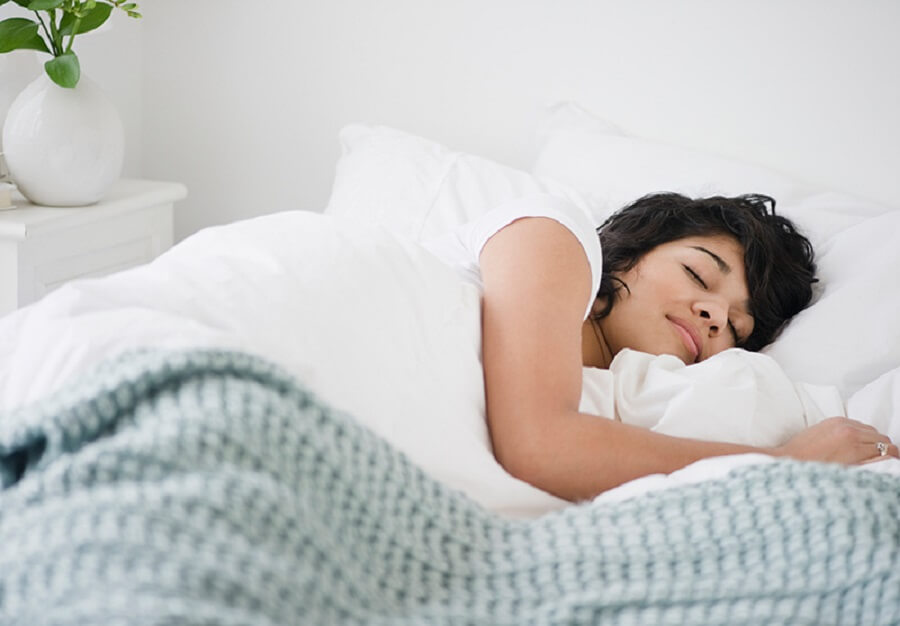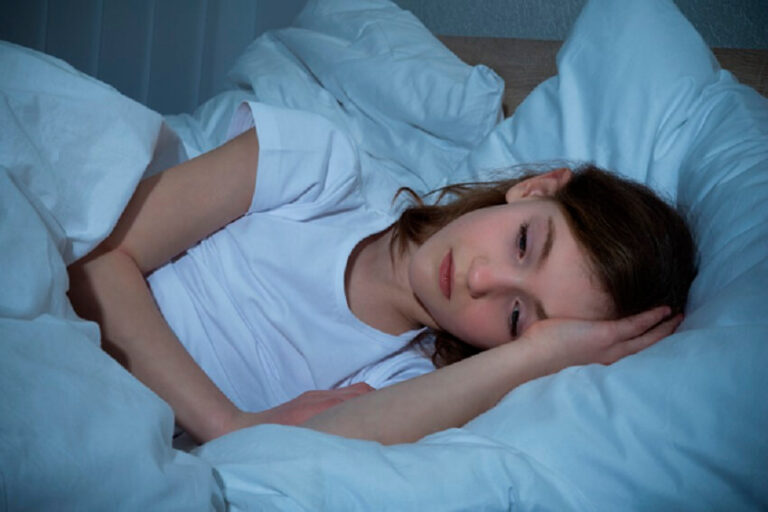What are the effects of hormones on sleep?
Hormones are essential for regulating the body’s biorhythms: waking and sleep cycles. Melatonin is the primary hormone that regulates the transition to the initial sleep phase.
It is also known as the sleep hormone. In medical terms, it is a natural sleep inducer. Melatonin acts on the nervous system. It’s biological synthesis directly affects the levels of other hormones such as cortisol, testosterone, serotonin, and dopamine¹.
Taking melatonin tablets to sleep is an excellent way to normalize the body’s circadian rhythms—something essential for people who work on a rotational basis and avoid sudden changes in jetlag.
Taking sleeping pills is not the best option for regulating circadian biorhythms. This is due to its side effects. However, sleep inducers have much lesser effects.
Determining the causes of insomnia is the key to regulating circadian biorhythms. In most cases, it occurs due to constant exposure to stressful situations, changes in time zones, or the use of sleep disorders such as caffeine.
Benefits of taking sleep inducers
Sleep inducers are considered one of the safest and most effective medications for regulating circadian rhythms. Taking melatonin tablets 30-40 minutes before bed increases the concentration of the sleep hormone. One of its main benefits is helping you fall asleep faster.
The benefits of taking sleep inducers are more noticeable in people over 50-55 years of age. Since the natural production of the sleep hormone decreases with age, a low level can negatively affect the functioning of other body systems.
Having regular sleep hormone levels is essential for well-being and mental health. Lack of it has been proven to lead to long-term depression and anxiety. Just as aging processes can be accelerated². Taking sleep inducers in low doses is an excellent way to avoid it.
The benefits of sleep inducers are:
- Regulates the body’s biorhythms
- Strengthen the immune system
- It is an antioxidant (slows down the aging processes).
- Regulates the process of assimilation of nutrients
- Well-being and mental health
Sleep hormone normalizes circadian biorhythms.
The sleep hormone is necessary to normalize the body’s biorhythms or circadian rhythms. These may have been altered due to night work or sudden time zone changes. Knowing how to regulate the sleep hormone facilitates the process of falling asleep and allows a better transition to the phase of deep sleep.
However, it is essential to know that melatonin falls into the category of sleep inducers. Taking melatonin tablets is not a suitable method when a person has severe insomnia disorders. In these cases, psychotropic drugs prescribed by a doctor are required.
Sleep hormone production is the primary signal to the brain that it is time to sleep. With a low level of this hormone, sleep becomes superficial, and insomnia and morning fatigue appear. Insufficient melatonin production leads to a bad mood and develops all kinds of sleep disorders.
How do the body’s biorhythms work?
Melatonin levels are associated with the body’s biorhythms (sleep and wake patterns), cortisol levels, and light. When sunlight enters the eye’s retina, the concentration of the sleep hormone in the blood is low. This is a direct signal to the brain to realize that it needs to work actively.
At night or in dimly lit rooms, their amount gradually decreases, preparing the body’s systems for a smooth transition to sleep.
In addition, the body’s biorhythms are affected by artificial lighting and other radiation sources. Including TV, computer or mobile phone screens. I am wearing braces before bed is believed to be one of the leading causes of sleep disorders.
In addition, the action of the sleep hormone is weakened by the effect of stress. As seen in the graph, cortisol levels are opposite to cortisol; when one goes down, the other goes up.
Factors that affect circadian biorhythms:
- Bright lighting and blue spectrum glow.
- High cortisol
- High adrenaline
- Caffeine
- Nicotine
Sleep inducers side effects and contraindications
The side effects of sleep inducers (melatonin tablets are) are rare; in rare cases, they may appear:
- Problems in the development of the fetus during pregnancy
- Digestive diseases
- Kidney and liver disorders
- Mellitus diabetes
- Epilepsy
- Allergies to secondary components or excipients. (In some cases, they contain gluten and lactose)
The contraindications of taking melatonin tablets are for people with allergies or hypersensitivity to the active principle or any excipients. Some melatonin tablets contain lactose or starch. So a person with gluten intolerance or lactose intolerance should avoid them. (3)
Another contraindication of sleep inducers is for people who work while driving or with heavy machinery. Taking sleep inducers can affect the body’s biorhythms and lead to a constant state of drowsiness.
How to take sleep inducers? – Recommended dose
Sleep inducers should be taken before bed and on an empty stomach. Cellular devices should not be used to enhance their effects.
The recommended dose of sleep inducers is 0.5 mg or 1 mg. Taking higher doses (3-5 mg of melatonin) is recommended only to ensure that lower doses do not increase work².
Melatonin with tryptophan What is it for?
In biohacking, higher doses of melatonin are used, approximately 20 mg, and combinations with 5-HTP (tryptophan). This is to achieve “lucid dreaming.”
Users claim that dreams take on a special glow. Be aware that daily use of these combination drugs can be dangerous and may excessively affect circadian biorhythms.
The concentration of melatonin in the human gastrointestinal tract is 400 times higher than in the pineal body of the brain, the organ where melatonin is produced.
What this molecule is used for in the stomach is unknown, but it has been established that it does not perform an endocrine function but rather a paracrine one. It probably works as an antioxidant and protects the body from free radicals².
Is milk with melatonin good?
The content of Phyto-melatonin in food is insufficient to manifest hypnotic effects. For example, the product richest in vegetable melatonin (cherry juice). The content of sleep inducers is 1300 ng (or 0.0013 mg) of the substance per 100 mL of liquid. It takes hundreds of liters of juice to equal the amount of sleep hormone in one tablet.
New products such as milk with melatonin have emerged marketed as sleeping foods. The key to its production is extracted from cows at night.
The bad news: the scientific community has denied the actual effects on inducing sleep. (3) The reason is simple: the amount of sleep hormone in milk with melatonin is meager; it does not exceed 40 ugs.
List of foods with melatonin:
- Food / Melatonin per 100 g
- Milk with melatonin 40 ug
- Cherry and cherry juice 1100-1300 ng
- Nueces 250-300 ng
- Mustard seeds 190-220 ng
- Maíz 180-200 ng
- Rice 150-160 ng
- Ginger root 140-160 ng
- Cacahuetes 110-120 ng
- Barley pearl 80-90 ng
- Avena 80-90 ng
- Espárragos 70-80 ng
Sleep inducers are hormones capable of regulating the body’s biorhythms (or circadian rhythms). The best known is melatonin. To control the body’s biorhythms, taking 0.5-1.0 mg on an empty stomach before sleeping is recommended, avoiding using electronic devices. The amount of melatonin in food is meager compared to tablets.







